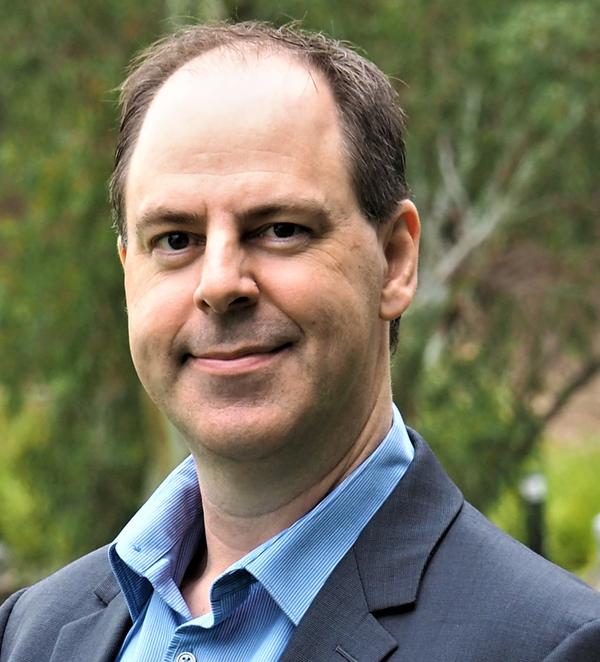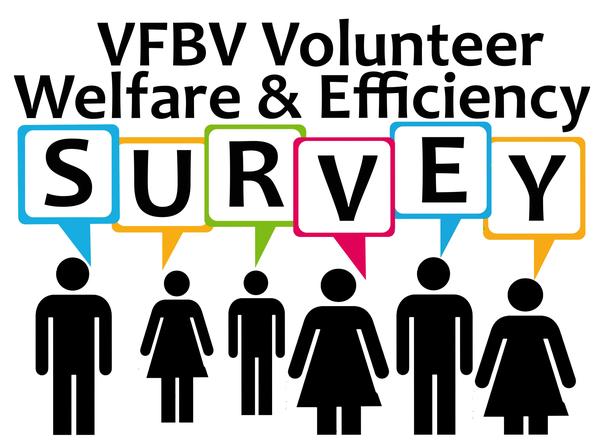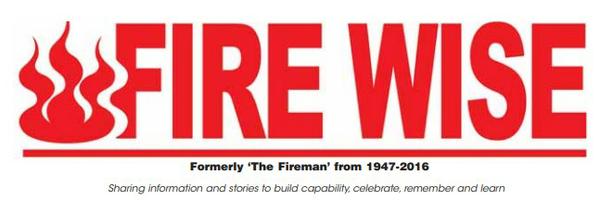Honestly, there are days that an eye roll emoji just doesn’t cut it.
I
refer to a gathering in Canberra of “key stakeholders” for a national disaster preparedness summit held on the 25th September. It is at this juncture I should inform you that judging from the invite list, apparently emergency service volunteer representatives are not considered by the Federal Government to be key stakeholders, even if they do represent 90% of Australia’s fire service workforce.
One therefore cannot be too surprised that one of the early announcements from this summit was that the Federal Government was considering a national paid “seasonal firefighting” force that would pay people to help out during national disasters. Apparently, this Canberra thought bubble was in response to the “worrying” decline in emergency service volunteer numbers across the country.
Quick memo – perhaps instead of thinking about band-aid solutions to fix declining volunteers, time would be better spent actually addressing the things making volunteers leave in the first place. Sprinkling precious tax payer funds on more wages when all volunteers want is a bit of respect and modern fire stations, trucks, clothing and equipment aptly fits Einstein’s definition of insanity.
Given I quoted Einstein last month, I am reminded of his quote: “Two things are infinite: the universe and human stupidity; and I’m not sure about the universe.”
If emergency service volunteer representatives had of been invited, perhaps they would have said something along the lines of; well
if you stopped treating us so badly, stopped suffocating us with all your bureaucracy, stopped starving us of funding and actually listened to us - maybe we would stop leaving.
Is it really that hard to figure out what is causing volunteers so much dissatisfaction?
Let me make it really simple; State Governments are doing emergency service volunteering on the cheap, and rather than the Federal Government holding them to account or supporting volunteers directly with some benchmarking, key performance indicators or backing us up with some much-needed funding, they distract with the usual shenanigans of summits and conferences.
For some politicians, volunteers are out of sight out of mind until they need us, and then when there are smoke plumes in the air, they fawn all over us like the second coming as they pose for their selfies while telling constituents how much they support volunteers.
Sorry, but talk is cheap.
A review of volunteer fire service budgets across the country shows the appalling state of support given across the country to our volunteer emergency services when compared to the billions of dollars sunk into their paid services. CFA’s budget was $807 million prior to fire services reform in 2020, dropping to $347 million last year. To put that into perspective, FRV’s overtime budget alone is now
purportedly almost the equivalent to one-third of CFA’s entire annual budget. Imagine if FRV needed to run 1,214 CFA fire stations instead of the 85 they do currently.
Yet volunteers are forced to fundraise just to scrape up enough money to buy the very equipment and infrastructure they need to do the job they are being asked to do for free. All while paying the
taxes that fund the other paid services.
So please don’t fall for the whole declining volunteerism mantra that some people try to spin as a self-fulfilling prophecy, as if it’s all these external factors and the decline is somehow inevitable. Rather, it has everything to do with how volunteers are treated. You don’t need to be Einstein to figure out volunteer
organisations rely on high morale to attract and retain volunteers.
This is exactly why CFA was setup as a statutory authority in the first place. Back then, even Parliament knew getting the government to run a volunteer fire service would be a complete mess. If it’s well accepted that governments should not run private enterprise because they are just not any good
at it – why do we think they would be any better at running a volunteer based emergency service? But over time, as the autonomy of a statutory authority has been whittled away, politics has been allowed to interfere, and public servants have been allowed to bring their forms and procedures and all the other things that stifle community innovation, can anyone be really surprised this might in fact be making volunteering unattractive?
If governments actually treated its emergency service volunteers with respect, funded them to the same levels as their paid services, provided them all the equipment and personal protective clothing they needed, built modern and functional fire stations, maintained and cleaned them, provided them with modern fire trucks that were not the oldest in Australia, and then shielded them from needless government bureaucracy,
while providing them adequate instructors and training that could be delivered at times suitable for volunteers, well gee, maybe that might send the message that government actually supports emergency service volunteers and restore morale.
VFBV will continue to monitor fire service budgets and watch for any government cuts. We have recently become aware of some
Districts and Regions claiming to cut programs due to budget cuts. At this point in time, we are not aware of any HQ mandated cuts, so please ensure you respond to any claim of cuts with a please explain, so we can track down who was responsible.
VFBV is not against efficiencies, or programs being redirected to try new things or bolster other programs where needs
have changed. But as always, this should be done in consultation with volunteers. If District Planning Committees were not involved in these decisions – it is time to ask why not?
SUMMER PREPAREDNESS
Due to
Victoria’s climate, flora and geography, we are one of the most fire prone places on the planet and therefore don’t need bad conditions to have a bad fire season. Even our mild seasons can be fairly ferocious. With this in mind, members are reminded that part of our commitment to safety and ensuring every volunteer arrives home safely, members are requested to complete their burn-over drill and ensuring your tree hazards awareness is up to date.
For the sake of your families and loved ones, even if you have decades of experience, please commit to completing the Chief Officer’s minimum requirements for the fire season ahead. Even if you know how to radio a mayday and activate the crew protection systems perfectly, perhaps you could assist the less experienced members of the crew by doing the burn over drill with them. It’s a small price to pay for peace
of mind that every person on the crew has refreshed their safety and survival skills for the season ahead.
PRESUMPTIVE LEGISLATION
VFBV is encouraging all political parties to support the expansion of Victoria’s
firefighter presumptive legislation scheme.
Currently Victorian firefighters are only protected by presumption for 12 cancers, with the Commonwealth Government now recognising 20. Western Australia and the ACT have already introduced legislation to expand their schemes to 20, and Tasmania will be the first State to recognise 21. As at writing, the Victorian
Government has only committed to expanding our scheme to include three additional cancers.
Members are reminded to please write, call and ask your local member of parliament where they stand on expanding Victoria’s presumptive legislation. A key way politicians can support their volunteer firefighters is to ensure that when they fall sick from the countless chemicals
and hazards we face on our firegrounds, they are protected by presumptive legislation. Ask your local MP where they stand.
VALE
It was with a heavy heart that on September 5th we farewelled former District 14
Council President ex-Captain Chris Maries of Doreen Fire Brigade.
Chris commenced with Yarrambat Fire Brigade in 2002 before moving to Doreen, and amongst his many contributions to our fire services, Chris championed presumptive legislation for firefighters long before governments started accepting the scientific evidence from international jurisdictions. This was a cause
he advocated fiercely for, long before its personal relevance became apparent in his later years.
To Chris’ family, friends, loved ones and fellow firefighters, I pass on our deepest condolences on behalf of the Association, as we fondly remember his distinguished service to his community and the people of Victoria.






